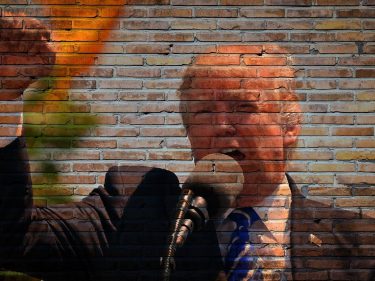When Satoshi Nakamoto published the Bitcoin white paper in 2008, nobody could have imagined that the digital asset industry would swell to over $2 trillion today.
Sixteen years into its adoption cycle, the crypto market can no longer be considered a fad or a libertarian casino. Rather, it’s the next evolution of finance. It’s both too big and too important to be treated on a partisan basis.
There are few financial sectors that aren’t being upgraded by the flow of funds in tokenized form. Cross-border payments, remittances, e-commerce, humanitarian aid, FX markets, money market funds, and retail purchases are all beginning to integrate blockchain-based financial rails into their infrastructure.
From migrant workers to Fortune 100 institutions, users are turning to this technology for the same reasons we all started using the internet: the ability to transact with anyone around the world near-instantly at near-zero cost. Like texting and cloud computing, blockchain networks represent an undeniable upgrade in accessibility, scalability, resilience, and security.
Darkening this great promise, however, is the shadow of partisan politics.
Crypto has become a significant campaign issue in the 2024 elections. In an age when everything from arugula to fertility treatments and EVs has become politicized, it’s no surprise to see red-blue gaps emerging on crypto.
What is a surprise, though, is the degree to which industry figures themselves have exacerbated the problem. Their frustrations with Washington are understandable. Between arbitrary regulation by enforcement and an array of hostile policy actions, they may be forgiven for feeling under siege.
But let’s take a step back: almost all innovative industries must contend with a steep learning curve and initial skepticism. It can be tempting to respond with a rage-against-the-machine mindset, which is psychologically satisfying but deeply counterproductive. Frankly, some of the self-caricatures we’ve seen from industry influencers represent a degree of political malpractice unseen since the infamous “I’m not a witch” ad from 2010.
Like charity, branding and messaging begins at home. It’s time for the crypto industry to reject the us vs. them mentality and embrace a bipartisan approach.
This isn’t just a pragmatic tactical pivot. It’s really an alignment with a convenient truth: developing a strong digital assets regulatory framework is in the national interest and should be inherently bipartisan.
Politicians as different as Senate Majority Leader Chuck Schumer and former President Trump have come around to this view in recent years. After initially spurning the industry, Trump gave a pro-crypto keynote speech at this summer’s Bitcoin Conference in Nashville. In his remarks, Trump likened Bitcoin to “the steel industry of a hundred years ago” and said that “If crypto is going to define the future, I want it to be mined, minted, and made in the USA.” Last week, he even bought a burger with crypto at Pubkey, a “Bitcoin bar” in NYC.
Schumer, for his part, made the case for crypto legislation to bolster American innovation at a Crypto4Harris event last month. “Passing legislation this year is absolutely possible, even in these divided times,” Schumer said. “We all believe in the future of crypto,” he added, saying he wanted to bring members on both sides of the aisle together “so we can pass sensible legislation that helps the United States maintain its status as the most innovative country in the world.”
Just this week, Vice President Kamala Harris added her own support for crypto, linking its importance to American competitiveness. “We will encourage innovative technologies like AI and digital assets while protecting consumers and investors,” she said. “We will create a safe business environment with consistent and transparent rules of the road.”
In part, this evolution reflects crypto’s sizable voting bloc, now estimated at 52 million Americans. More importantly, it represents the resonance of crypto’s promise with important priorities in each party.
For Democrats, crypto represents a vital departure from the costly fees and exclusive nature of traditional finance. It’s one of the most powerful tools we have to promote financial inclusion and economic mobility.
For Republicans, crypto represents a critical tool to preserve privacy and extend free enterprise globally.
For both parties, crypto means future-proofing the dollar, encoding democratic values into the future of finance, and protecting American technology competitiveness.
This fall’s post-election lame duck session in Congress holds the promise of not only delivering legislation, but also cementing crypto as a key policy agenda item for the next administration. It’s a good sign that other major financial hubs in Europe and APAC are moving forward with digital asset regulation. But, Americans shouldn’t settle for allowing other jurisdictions to set the rules for the issuance of digital U.S. dollars. Democrats and Republicans alike should want to protect the integrity of the U.S. dollar and put regulations in place to protect our own currency and position as the leading global currency.
From Dodd-Frank in 2010 to the Communications Decency Act of 1996, Congress has a proud history of passing consequential, durable legislation on strategically important areas like financial markets and the internet with strong bipartisan majorities. Narrow margins undermine confidence and set the stage for future back-tracking. That’s why the crypto industry should be engaging with every member in both parties to make the case for standards to bolster American leadership and American values.
The next few months represent a historic opportunity to level up this industry with bipartisan legislation. Getting an American outcome requires a purple mindset. With the right positioning, this industry can be as American as Detroit carmakers, Silicon Valley tech, and apple pie – putting our values and our interests at the center of the next era of global financial infrastructure.
Note: The views expressed in this column are those of the author and do not necessarily reflect those of CoinDesk, Inc. or its owners and affiliates.




